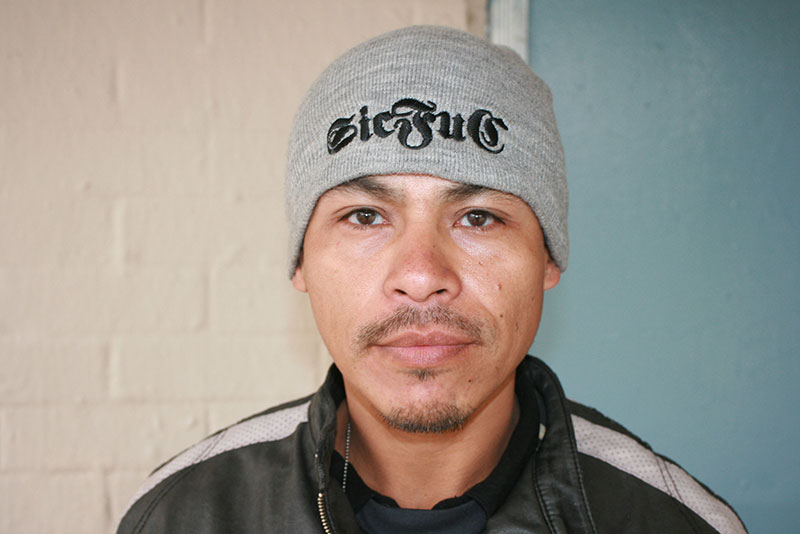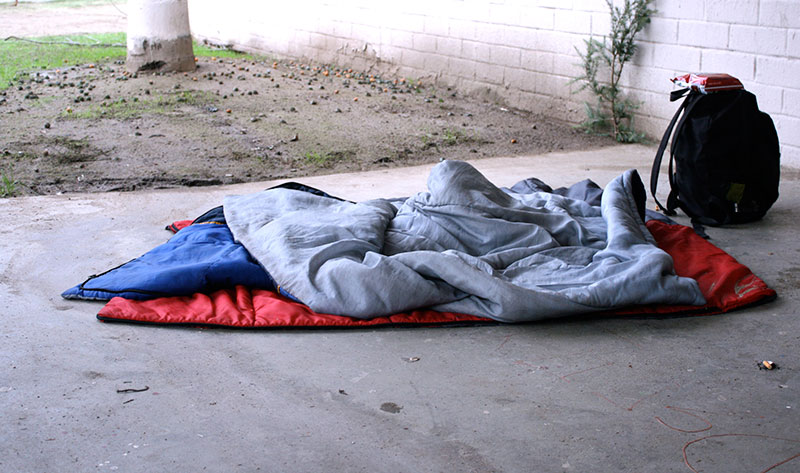

Six months have passed since Andy Mendoza last saw his son.
“I call my ex and I hear my boy, you know,” he says. “I see pictures of him on Facebook when I go to the library.”
Luis Mendoza, now 4 years old, lives with his mother in a Huntington Park apartment. His father lives in a sleeping bag at the South Park Recreation Center in South Los Angeles.
Andy Mendoza, 33, has either been employed or in school since emigrating from Guatemala two decades ago. Prior to working seven years for the linen-management company Angelica, he pursued a degree in business administration at the University of California Davis and Los Angeles City College.
“When I started just working full-time . . . I was only doing part-time in school,” he says. “Eventually, I just left the school. I was more into making money.”
In 2008, Mendoza was laid off from his office administration job at Angelica. Shortly afterwards, he lost his condominium and turned to methamphetamine to cope with his emotional distress.
“It started a little bit with, instead of using coke or other drugs, I started using it . . . and I liked it,” he says. “I liked it, but it’s dangerous because it gets to a point where I get out of control, I get into a rage. If I get upset, that’s just when I lose it.”
Three months ago, after failing to comply with a court order stemming from a domestic violence charge, Mendoza was incarcerated for more than 30 days and his car was impounded. He has lived on the streets since, working as a handyman to support his addiction.
“Basically, I work just enough to get by . . . to get my food and enough to supply for my drugs,” he says. “I don’t steal, I don’t bother people for money on the streets, I don’t ask for anything. I do work, clean . . . houses for people that trust me.”

Despite his good intentions, Mendoza is controlled by a physical need to fuel his addiction.
“It becomes, in my mind, like my body needs it,” he says.
He will smoke three or four times a week, costing him anywhere between $60 to $80. On occasion, he will get high and collect bottles and cans for extra cash.
“My heart tells me to . . . practically stop and start working, get employed,” he says, though he admits the craving for a high overrides his desire to rebuild his life.
Mendoza occasionally sees one of his brothers, who is helping take care of Luis in his absence, but he has largely cut himself off from the rest of his family. “I don’t want them to see me like this,” he says.
With the holiday season around the corner, Mendoza wants to briefly stop by his father’s house to let him know that he’s doing okay. The only chance he will get to see Luis, however, will be when he browses Facebook.
“I like [meth], even though I give up seeing my family and everything,” he says. “It’s kind of like — I’ve been selfish. I don’t know if it’s the drugs that are making me think that.”